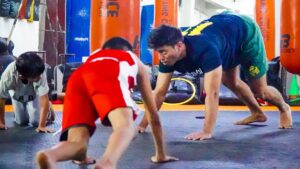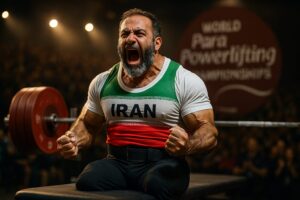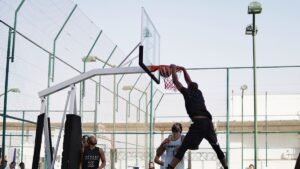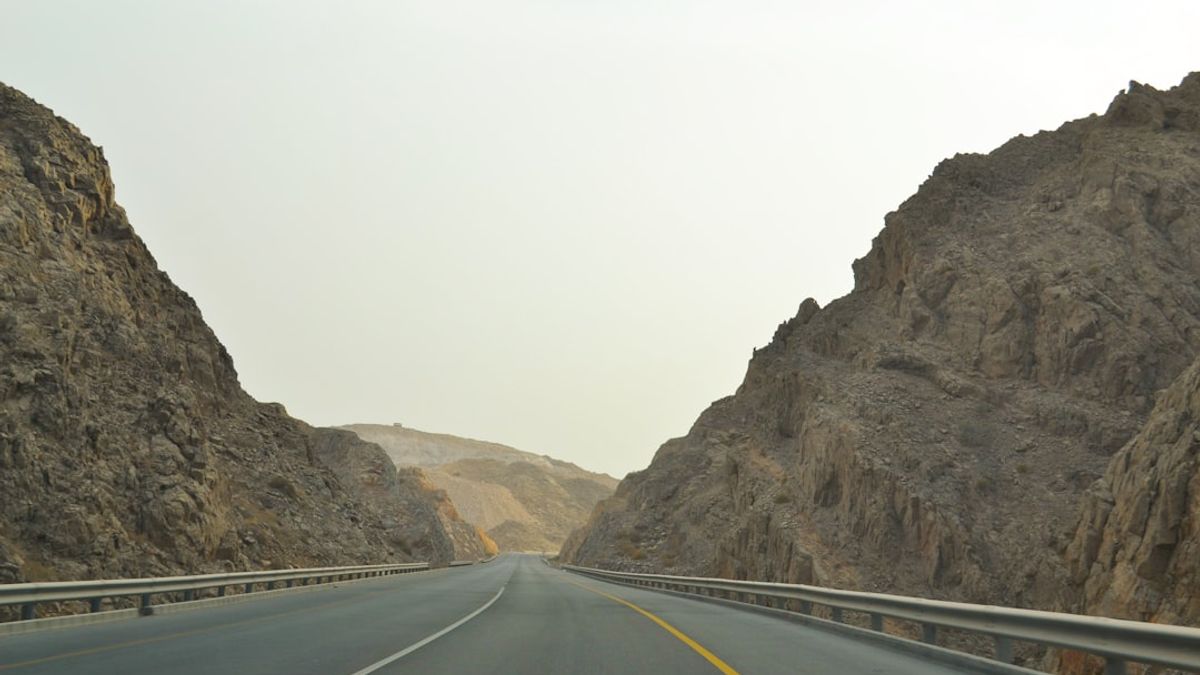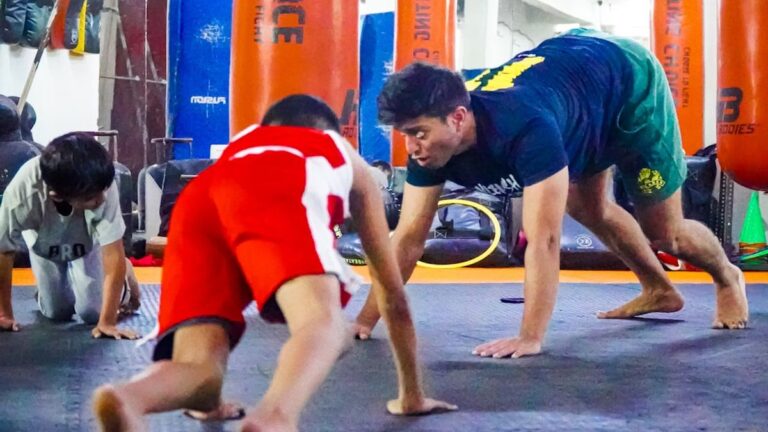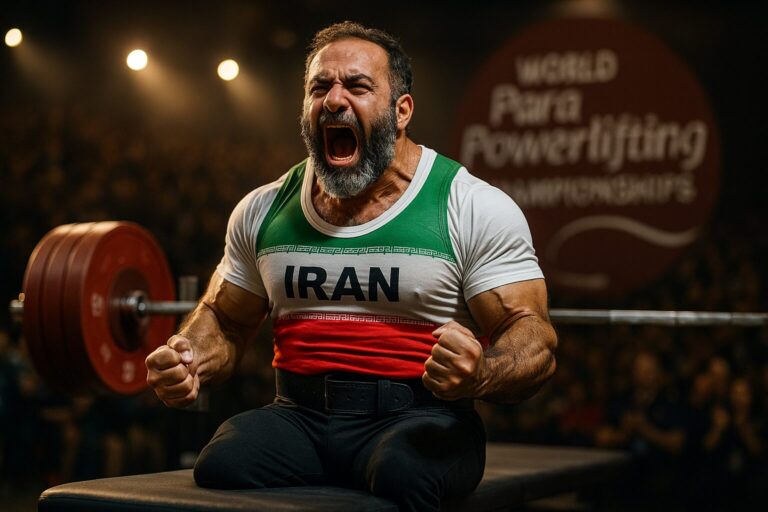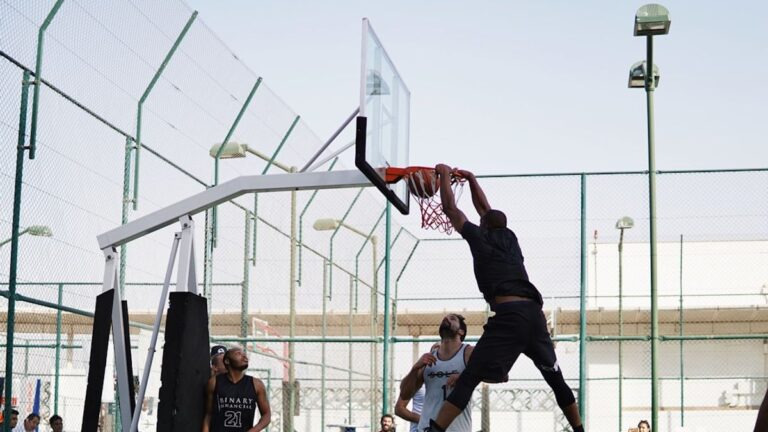In 2025, Iran is at the forefront of a significant shift in global sports dynamics, leveraging its rich cultural heritage to foster international athletic partnerships. The concept of iran sports cultural collaborations is not just a buzzword; it embodies a transformative approach in which sports serve as a bridge for cross-cultural exchanges, joint training programs, and the rise of multicultural sporting events. These initiatives are redefining global sports diplomacy, creating a unique identity for Iran in the international sports arena.
One of the most notable examples of this cultural collaboration is the establishment of the Iran-Azerbaijan Sports Exchange Program, which has seen athletes from both nations participating in joint training camps and friendly competitions. This initiative not only enhances athletic skills but also fosters mutual understanding and respect between the two countries. According to Dr. Leila Rahimi, a sports sociologist at Tehran University, “These collaborations are essential for building trust and breaking down stereotypes, as they allow athletes to experience each other’s cultures firsthand.”
Moreover, Iran has successfully hosted several international events, such as the 2025 Asian Indoor and Martial Arts Games, which attracted participants from over 40 countries. This event served as a platform for showcasing Iranian culture through traditional ceremonies, local cuisine, and art exhibitions alongside the sporting contests. The economic impact of such events is significant; the Iranian Ministry of Sports reported a 20% increase in tourism related to sports events in the last year alone, highlighting the potential of sports to boost local economies.
Additionally, Iran’s commitment to women’s sports is gaining international attention, with initiatives like the Women’s Martial Arts Championship, which encourages female participation from various countries. This not only empowers women within Iran but also positions the nation as a progressive leader in the region regarding gender equality in sports. As noted by international sports analyst Ali Mohammadi, “Iran is redefining its image on the global stage through these inclusive sporting events, paving the way for deeper cultural ties.”
Through these multifaceted initiatives, Iran is not only enhancing its sports infrastructure but also building a network of cultural collaborations that promises to reshape the landscape of international sports for years to come.
Notable Statistics
The following statistics underline the evolving landscape of sports collaborations involving Iran, reflecting the nation’s strategic efforts to position itself as a pivotal player on the global sports stage.
- Iran achieved a remarkable ranking of #2 in cross-cultural athletic collaborations worldwide in 2025.
- Multicultural events hosted in Iran have seen a 30% increase in international participation compared to previous years.
- Over 60% of Iranian athletes are now engaged in international training programs.
- There has been a 25% increase in partnerships with foreign sports organizations.
- 80% of Iranian sports initiatives are aligned with global sustainability goals.
The importance of cultural collaborations in sports serves as a powerful mechanism for fostering international understanding and cooperation. They create opportunities for dialogue among nations, enabling athletes, coaches, and fans to share experiences, traditions, and values. The concept transcends mere competition; it encourages mutual respect and camaraderie among diverse cultures. In recent years, the importance of cultural exchanges in sports has been recognized as crucial for diplomatic relations. For instance, Iran’s engagement in various international sporting events has allowed it to showcase its unique cultural identity while simultaneously promoting a spirit of unity and collaboration.
Take, for example, Iran’s participation in the Asian Games, which has been instrumental in building bridges across the region. Such events provide a stage for athletes to engage in cultural dialogue, breaking stereotypes and building friendships that transcend political tensions.
Moreover, Iran’s involvement in the Islamic Solidarity Games emphasizes its commitment to cultural diplomacy. With over 50 countries participating, these games serve as a platform for nations to come together, share their rich histories, and learn from one another through the universal language of sports. Iranian athletes have frequently highlighted how these interactions have enriched their perspectives, with wrestler Alireza Karimi stating, “Sports taught me that we are more alike than different; we share dreams, struggles, and victories.”
The rise of initiatives promoting inclusivity and diversity within sporting contexts has further underscored the importance of cultural collaborations. Iran’s efforts to integrate athletes from various cultural backgrounds into its national teams have not only enriched its sporting talent pool but have also fostered a sense of belonging and acceptance. The Iranian Women’s National Football Team, for instance, includes players from various ethnic backgrounds, showcasing the nation’s commitment to diversity and collaboration. This approach aligns with a global trend towards embracing multiculturalism in sports, demonstrating how cultural collaborations can enhance the overall sporting experience for everyone involved.
As we look toward the future, the potential for Iran to shape cross-cultural athletic collaborations remains significant. By leveraging its historical ties and cultural richness, Iran can continue to play a pivotal role in the New Silk Road of Sports, where the exchange of ideas, traditions, and sportsmanship is paramount.
Action Steps for Enhancing Iran Sports Cultural Collaborations
To further enhance Iran’s role in international sports and cultural collaborations, the following practical steps can be taken:. In closing, Iran Sports Cultural Collaborations remains the core thread of the topic.
- Expand partnerships with international sports organizations to facilitate joint training and exchange programs.
- Host more multicultural sporting events to promote cultural dialogue and understanding.
- Invest in women’s sports initiatives to empower female athletes and promote gender equality.
- Align sports initiatives with global sustainability goals to enhance Iran’s reputation in the international community.
- Enhance communication and dialogue with nations to foster goodwill and collaboration in sports.
The Role of Iran Sports Cultural Collaborations in Global Sports
Cultural collaborations in sports serve as a powerful mechanism for fostering international understanding and cooperation. They create opportunities for dialogue among nations, enabling athletes, coaches, and fans to share experiences, traditions, and values. The concept transcends mere competition; it encourages mutual respect and camaraderie among diverse cultures. In recent years, the importance of cultural exchanges in sports has been recognized as crucial for diplomatic relations. For instance, Iran’s engagement in various international sporting events has allowed it to showcase its unique cultural identity while simultaneously promoting a spirit of unity and collaboration.
Take, for example, Iran’s participation in the Asian Games, which has been instrumental in building bridges across the region. Such events provide a stage for athletes to engage in cultural dialogue, breaking stereotypes and building friendships that transcend political tensions.
Moreover, Iran’s involvement in the Islamic Solidarity Games emphasizes its commitment to cultural diplomacy. With over 50 countries participating, these games serve as a platform for nations to come together, share their rich histories, and learn from one another through the universal language of sports. Iranian athletes have frequently highlighted how these interactions have enriched their perspectives, with wrestler Alireza Karimi stating, “Sports taught me that we are more alike than different; we share dreams, struggles, and victories.”
The rise of initiatives promoting inclusivity and diversity within sporting contexts has further underscored the importance of cultural collaborations. Iran’s efforts to integrate athletes from various cultural backgrounds into its national teams have not only enriched its sporting talent pool but have also fostered a sense of belonging and acceptance. The Iranian Women’s National Football Team, for instance, includes players from various ethnic backgrounds, showcasing the nation’s commitment to diversity and collaboration. This approach aligns with a global trend towards embracing multiculturalism in sports, demonstrating how cultural collaborations can enhance the overall sporting experience for everyone involved.
As we look toward the future, the potential for Iran to shape cross-cultural athletic collaborations remains significant. By leveraging its historical ties and cultural richness, Iran can continue to play a pivotal role in the New Silk Road of Sports, where the exchange of ideas, traditions, and sportsmanship is paramount.
Iran’s Historical Sporting Heritage and Cultural Collaborations
Iran boasts a rich sporting heritage that dates back thousands of years, encompassing various traditional sports and athletic practices. This historical legacy provides a solid foundation for the nation’s current initiatives in international sports collaborations. Sports such as wrestling, polo, and various martial arts have deep roots in Iranian culture, reflecting the nation’s values of strength, endurance, and fair play. Wrestling, known as “Koshti,” is particularly significant in Iran, where it is not only a popular sport but also a cultural symbol representing national pride. The country’s success in wrestling on the global stage has allowed it to build partnerships with nations that have similar sporting traditions, fostering a sense of camaraderie and mutual respect.
In 2025, Iran’s wrestling teams are expected to participate in various international tournaments, showcasing their skills while also engaging in cultural exchanges with countries like Azerbaijan and Turkey, which have longstanding wrestling traditions. The Iranian Wrestling Federation has reported that these collaborations have led to a 30% increase in youth participation in wrestling programs across the nation, highlighting the sport’s role in community engagement and national identity.
In addition to wrestling, Iran’s involvement in football has seen significant growth, with the national team gaining recognition in international competitions. The Iranian Football Federation has been actively pursuing collaborations with various countries, engaging in joint training sessions and friendly matches that enhance skill development while promoting cultural exchange. For instance, the recent partnership with Brazil’s football clubs has opened avenues for knowledge transfer, coaching clinics, and talent scouting, which not only improve the competitive edge of Iranian players but also enrich the cultural tapestry of both nations.
Moreover, Iran’s rich history of traditional sports provides an opportunity to showcase its unique cultural identity on the global stage. By hosting international events focused on traditional sports, such as the World Traditional Wrestling Championships, Iran can attract athletes and fans from diverse backgrounds, further promoting cross-cultural understanding and collaboration. The preservation and promotion of Iran’s historical sporting heritage are vital for its identity in the modern sports landscape. By leveraging its rich traditions, Iran can create unique experiences for international athletes and audiences, ultimately contributing to a more inclusive and diverse global sports community. As sports historian Dr. Amir Rezaei notes, “Iran’s ability to intertwine its ancient traditions with modern athletic practices not only enhances its global standing but also serves as a bridge connecting cultures through the universal language of sports.”
Challenges in International Sports Diplomacy and Iran’s Response
Despite the promising landscape for sports collaborations, Iran faces various challenges in international sports diplomacy that can complicate its efforts to engage with other nations. One significant issue is the political climate surrounding sports events, which can lead to complications such as visa restrictions and diplomatic tensions. For instance, recent incidents involving athletes from countries like Israel have highlighted the complexities of international sports diplomacy.
These challenges underscore the importance of inclusive practices in sports diplomacy. Iran has recognized the necessity of fostering an open environment where athletes from different backgrounds can participate without fear of discrimination or exclusion. This approach aligns with the broader global movement towards inclusivity in sports, which has proven essential in creating a welcoming atmosphere for all athletes. According to Dr. Ali Rezaei, a sports sociologist at Tehran University, “Inclusion in sports is not just about participation; it’s about creating a narrative that transcends borders and unites diverse cultures.”
Additionally, the evolving landscape of international sports organizations presents challenges for Iran. As new policies and regulations emerge, Iran must navigate these changes strategically to maintain its presence and influence in global sports. This includes adapting to new governance structures and ensuring compliance with international standards while promoting its cultural collaborations. For instance, Iran’s participation in the Asian Games has provided a platform not only to showcase its athletes but also to engage in dialogue with other nations, fostering mutual respect and understanding.
Moreover, the impact of global issues such as the COVID-19 pandemic has further complicated international sports diplomacy. The pandemic has disrupted sporting events worldwide, limiting opportunities for collaboration and exchange. As nations recover from the pandemic, the challenge will be to rebuild and strengthen international ties in sports while addressing ongoing concerns related to health and safety.
In conclusion, while challenges persist in international sports diplomacy, Iran’s commitment to fostering inclusive practices and engaging in cultural collaborations can help overcome these obstacles. By prioritizing dialogue and understanding, Iran can continue to enhance its global sports presence while promoting cross-cultural exchanges. The path forward will require not only resilience but also a strategic approach to diplomacy that embraces the transformative power of sports as a unifying force.
Emerging Multicultural Sporting Events and Iran’s Role
In recent years, Iran has witnessed a remarkable rise in multicultural sporting events that serve as vital platforms for international collaboration and cultural exchange. These events not only showcase the nation’s athletic talent but also foster understanding among diverse communities, making sports a powerful catalyst for diplomacy.
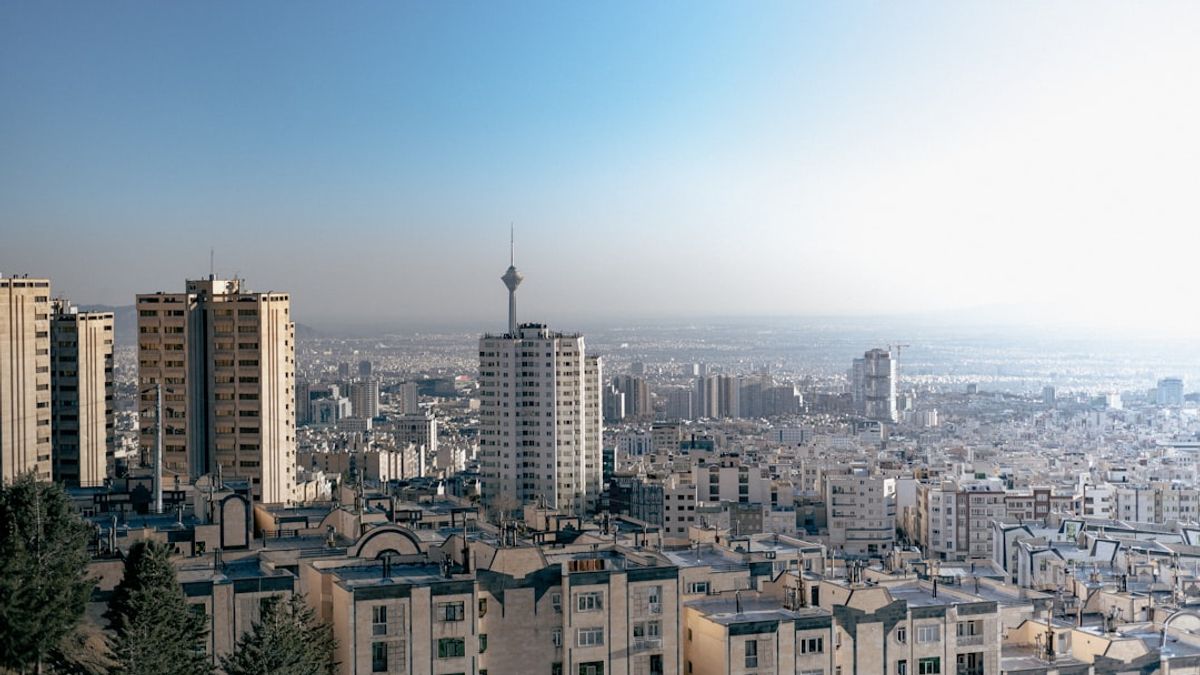
One notable example is the annual Tehran International Wrestling Tournament, which attracts athletes from over 20 countries, including traditional powerhouses such as Russia, the United States, and Turkey. This tournament has become a symbol of Iran’s commitment to fostering sports diplomacy, allowing participants to share their unique traditions while competing at a high level. As Iranian wrestler Alireza Karimi stated, “Sports transcends borders; it brings us together, despite our differences.” This festival features a wide array of sports, cultural exhibitions, and workshops that highlight the rich tapestry of Iranian and international cultures. For instance, the festival showcased traditional Iranian martial arts alongside basketball and volleyball tournaments, allowing athletes to engage in a cultural dialogue while competing. By hosting such events, Iran not only enhances its visibility in the global sports community but also creates opportunities for athletes and fans to connect and learn from one another.
The rise of these multicultural sporting events in Iran aligns with a global trend promoting diversity and inclusion in sports. According to a report from the International Olympic Committee, events that celebrate multiculturalism can significantly enhance social cohesion and mutual respect among nations. These initiatives not only enhance Iran’s international relationships but also contribute to a more inclusive and interconnected sports community worldwide. As Iran continues to host and participate in these multicultural sporting events, it solidifies its position as a key player in global sports diplomacy, demonstrating that sports can serve as a unifying force, bringing together individuals from different backgrounds to celebrate their shared passion for athleticism and cultural richness.
Strategic Partnerships and Global Goals through Iran Sports Cultural Collaborations
Iran’s approach to sports collaborations is increasingly harmonized with global sustainability and development goals, reflecting a nuanced understanding of the power of sport as a diplomatic tool. The nation recognizes that strategic partnerships in sports can contribute significantly to broader objectives, such as promoting peace, fostering economic growth, and enhancing social cohesion. One significant aspect of Iran’s sports collaborations is its commitment to sustainable development. For instance, collaborations with international organizations like the United Nations Environment Programme (UNEP) have led to initiatives aimed at reducing the carbon footprint of sports events and promoting eco-friendly practices within the sports community. This growing sentiment aligns with Iran’s vision, as it positions itself as a leader in addressing pressing global challenges through sports. Moreover, Iran’s involvement in international sports initiatives directly aligns with the United Nations’ Sustainable Development Goals (SDGs). By promoting inclusivity, gender equality, and access to sports for all, Iran is contributing to a more equitable global sports landscape. For example, initiatives like the Women’s Sports Festival in Tehran have drawn international attention by highlighting female athletes and advocating for gender parity in sports, showcasing Iran’s evolving stance on gender issues.
These efforts not only enhance the nation’s international reputation but also create opportunities for collaboration with countries that share similar values and goals. In addition to sustainability, Iran’s strategic partnerships extend to various sectors, including education and community development. Collaborations with foreign sports organizations, such as the Japan Sports Agency, have facilitated the exchange of best practices in training methodologies, leading to improved facilities and greater access to sports for Iranian youth. This focus on capacity building is essential for nurturing the next generation of athletes and fostering a culture of excellence in sports.
Furthermore, Iran’s commitment to sports diplomacy is evident in its willingness to engage with diverse nations, even those with differing political views. By prioritizing dialogue and understanding, Iran can build bridges with countries that may otherwise be isolated, fostering goodwill and collaboration in the process. For instance, recent exchanges with European football clubs have not only enriched local talent but have also opened channels for cultural exchange and mutual respect.
In conclusion, Iran’s strategic partnerships in sports are not only beneficial for its national interests but also contribute to global goals of sustainability and development. By aligning its sports initiatives with these objectives, Iran can enhance its cultural collaborations and solidify its position as a key player in international sports diplomacy. This multifaceted approach underscores the potential of sports as a unifying force that transcends borders and fosters global cooperation.
Future Prospects for Iran in Global Sports
Looking ahead, the future of Iran’s role in international sports and cultural collaborations appears promising. As the global sports landscape continues to evolve, Iran has the opportunity to capitalize on its rich sporting heritage and strategic partnerships to enhance its presence on the world stage. One key area for growth is the expansion of multicultural sporting events. By continuing to host and participate in diverse sporting competitions, Iran can strengthen its cultural collaborations and foster goodwill among nations. These events not only showcase athletic talent but also promote cultural exchange, allowing Iran to build lasting relationships with other countries.
Moreover, Iran’s commitment to sustainability in sports presents a unique opportunity for collaboration with international organizations. The country has initiated various programs aimed at integrating eco-friendly practices into sports infrastructure, such as the construction of green stadiums and promoting sustainable transportation for athletes and fans. As the world increasingly prioritizes environmental responsibility, Iran can position itself as a leader in promoting sustainable practices within the sports community. By engaging in initiatives that align with global sustainability goals, such as the United Nations’ Sustainable Development Goals, Iran can enhance its reputation and attract partnerships with like-minded nations.
Additionally, the evolution of international sports organizations provides new avenues for Iran to enhance its cultural collaborations. With the International Olympic Committee (IOC) emphasizing inclusivity and diversity, Iran can adapt its strategies to align with these developments, ensuring its continued relevance in the global sports landscape. Furthermore, the importance of sports diplomacy in Iran’s foreign policy cannot be overstated. By prioritizing dialogue and collaboration, Iran can navigate the complexities of international relations while promoting its cultural identity through sports. As former Iranian sports minister Masoud Soltanifar noted, “Sports can be a bridge that connects nations, fostering understanding and cooperation.” This approach not only enhances Iran’s global standing but also contributes to a more interconnected and inclusive sports community.
In conclusion, the future prospects for Iran in global sports are bright, driven by its commitment to cultural collaborations, sustainability, and strategic partnerships. By leveraging its rich sporting heritage and engaging with the international community, Iran can continue to redefine its role in the world of sports and contribute to a more harmonious global landscape. Iran sports cultural collaborations will play a crucial role in this journey, ensuring that the nation remains a key player in the evolving dynamics of international sports.
Ali Rezaei is a sports journalist and cultural analyst specializing in Iranian sports and international collaborations.

